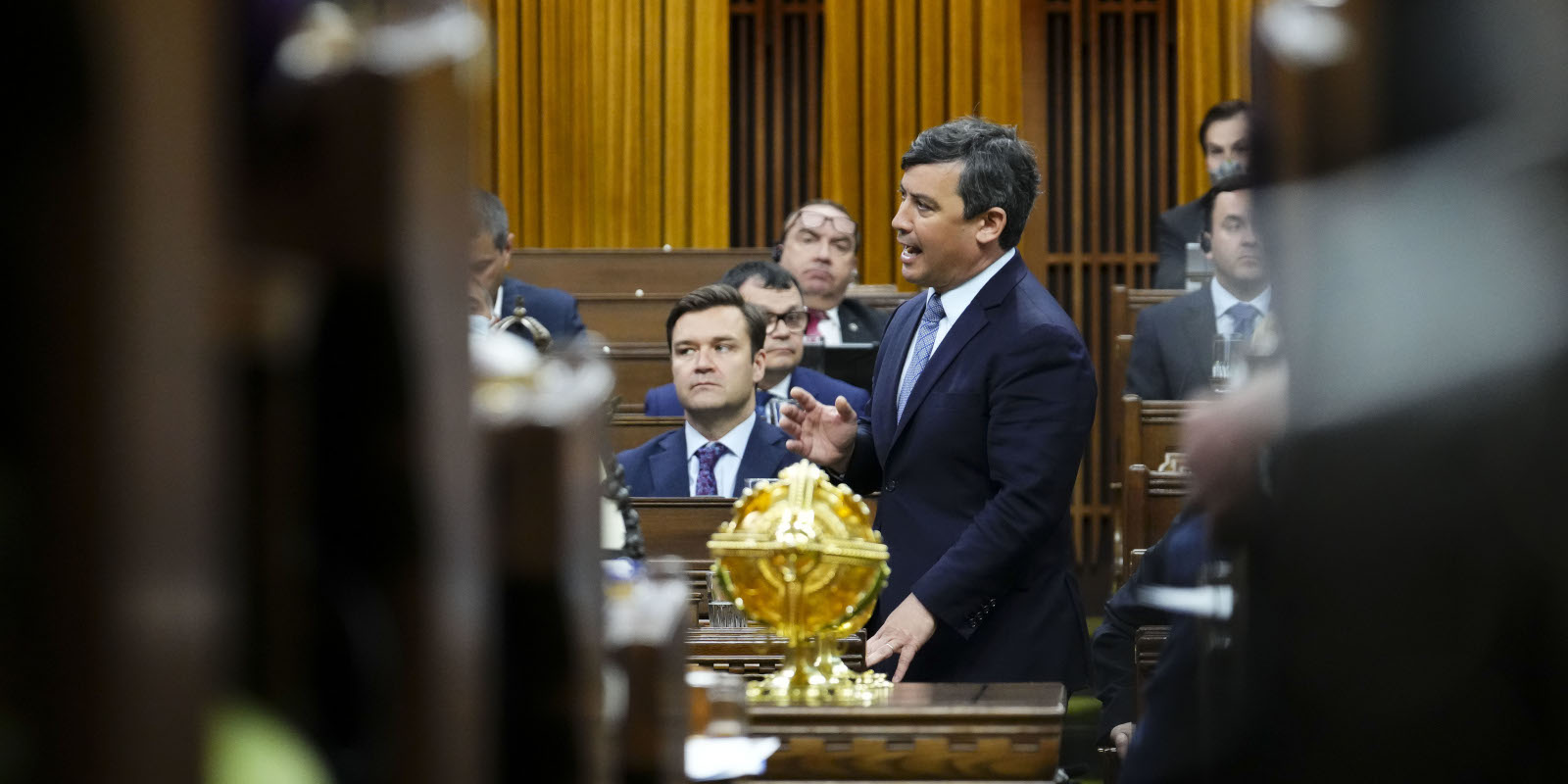It’s too easy for hostile foreign powers to interfere in Canadian democracy with few consequences, national security experts said in the wake of revelations that China had targeted for intimidation the extended family of a member of Parliament.
Conservative MP Michael Chong said he was never informed of the attempt to intimidate his family in Hong Kong despite a Globe and Mail report this week that a top-secret intelligence report detailing the effort was written nearly two years ago.
Conservative leader Pierre Poilievre said in question period on Tuesday that the Chinese diplomat allegedly involved in the attempted intimidation still retains his diplomatic accreditation and immunity.
“Why is (the prime minister) keeping this agent in our country threatening our people?” said Poilievre.
Chong confirmed to the House of Commons on Tuesday that the Canadian Security Intelligence Service believes his family was targeted after Chong co-sponsored a motion condemning human rights abuses in China’s Xinjiang region.
If there are no consequences to this type of activity it’s certain to continue, national security experts said on Tuesday.
“This has to be extremely high-risk behaviour in Canada. And if it isn’t, then you will continue to see this type of exploitative activity right here on our soil,” said Andrew House, who served from 2010 to 2015 as chief of staff to successive ministers of public safety in the Harper government.
House quoted a line from the intelligence document reported on by the Globe: “Threat actors almost certainly perceive their activities in Canada to be low risk and high reward.”
“That ratio has to change,” he said, with the first step being expulsion for anyone who was involved in this kind of activity.
“If there’s any actionable intelligence that the diplomat in question was involved in an influence operation, or an attempt to intimidate a public office holder, leaving the country is the first order of business,” said House.
House said that would “send a strong and basic message that this type of thing simply will not be tolerated in Canada.”
In an interview with The Hub, Chong said that foreign actors believe they have free rein in Canada.
“We’ve become a playground for authoritarian states to coerce our citizens here and undermine our foreign policy, undermine our position in the Five Eyes intelligence alliance, undermine our position in NATO by using this these coercive tactic tactics here on Canadian soil,” said Chong
“This inability of the government to tackle foreign interference threat activities here really is a serious national threat,” said Chong.
It’s up to governments to communicate what they consider unacceptable behaviour, said Christian Leuprecht, a professor at the Royal Military College and Queen’s University and a senior fellow at the Macdonald Laurier Institute.
“We need to send clear signals about unacceptable behaviour, just like we do when it comes to foreign policy by bad actors,” said Leuprecht. “There needs to be consequences that are commensurate with the level and severity of the transgression.”
In the wake of news about Chinese interference in the Canadian election, some experts have suggested that Canada build a foreign agent registry, which the government is currently considering, and which is already in use in the United States.
Prime Minister Justin Trudeau said during question period on Monday that these kinds of tactics are unacceptable and that his office is looking into it.
National security experts said that it’s highly unusual for incendiary information like this to slip through the cracks between the government’s top-ranking political staff and CSIS, which gathers intelligence.
“It is probable that someone at the political level would have been aware,” said House.
“Somebody, somewhere in the system, of a sufficient level of seniority was aware that it was Michael Chong who was being targeted and his family abroad, and ought to have done something about this,” said House.
On Tuesday, Trudeau strenuously denied that his government sat on the intelligence report about Chong and accused the opposition of political cynicism for suggesting that it did.
“To suggest that anyone in this House would see a threat to a colleague and simply sit on it is unworthy of parliamentarians,” said Trudeau on Tuesday.

“I’m incredulous at the response,” said Leuprecht.
“There is no question in my mind, not an inkling of doubt, that the political staff of the minister would have been informed about a member of Parliament and his family possibly coming under duress,” said Leuprecht.
Part of the issue, said Leuprecht, is that CSIS has a mandate to inform about intelligence rather than to give advice, meaning that any warning to Chong would have likely needed approval from political staff in the government.
Chong said that he was receiving briefings from CSIS even while the agency was aware of the campaign against his family and yet he wasn’t told about it.
“CSIS had provided me briefings on foreign interference activities, particularly from the People’s Republic of China. But they never, ever informed me that the Ministry of State Security of the PRC had tasked a senior diplomat out of the consulate in Toronto with targeting my family in Hong Kong. That’s astounding,” said Chong.
Recommended for You

‘You have to meet bullying with counter-bullying’: David Frum on how Canada can push back against Trump’s trade negotiation tactics

‘Our role is to ask uncomfortable questions’: The Full Press on why transgender issues are the third rail of Canadian journalism

Need to Know: Mark Carney’s digital services tax disaster

Theo Argitis: Carney is dismantling Trudeau’s tax legacy. How will he pay for his plan?



